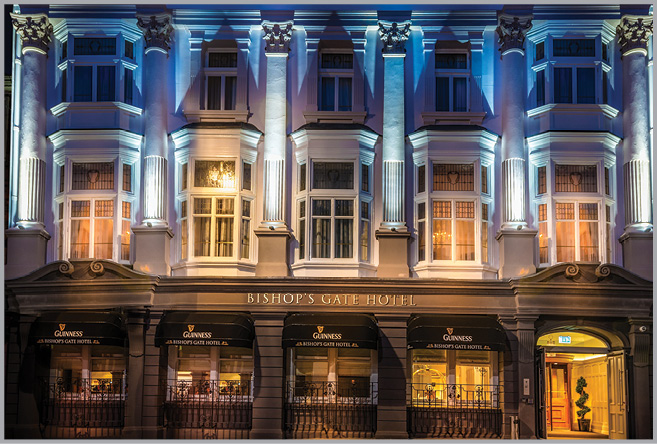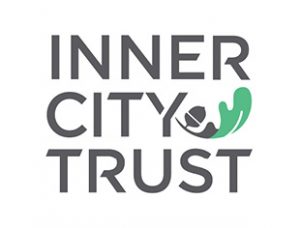Investing in people and place


Established in 1981 as a limited company with charitable status, the Inner City Trust’s objectives are to relieve poverty, promote education and skills, and advance urban regeneration.
The city centre of the 1980s was characterised by bombed and burned out buildings which held little attraction for developers or investors. Unemployment was at an all-time high. The commercial and retail core was decimated. Against this difficult backdrop, the Trust acquired properties, refurbished them by engaging young unemployed workers and restored them as commercial outlets.
An ambitious programme of development continued until 2006 when the Trust renewed its Board. Chief Executive, Helen Quigley, explains: “2006 to 2011 presented unforeseen economic challenges for everyone. The Trust took stock of operations and realised new thinking was needed if the social and economic vibrancy of the city centre was to be safeguarded. The manufacturing sector had all but vanished and online shopping meant the closure of businesses. In short, the high street was in crisis.”
In 2011 Derry was named UK City of Culture 2013, heralding a period of unprecedented activity in preparation for the year-long festival. Inner City Trust was quick to recognise culture as an agent of physical, economic and social change and commissioned a feasibility study to establish the potential of the creative industries to help regenerate the commercial core. The result has been the spawning of clusters of small craft businesses within the Walled City, particularly in the Trust’s Craft Village.
“While the creative industries aren’t significant job generators, they are wealth creators. Three years since the end of City of Culture, small businesses help underpin the tourism economy and lend a vibrancy to the city,” says Quigley. “By supporting them and investing in skills, we are enhancing the tourism product and increasing footfall in the city centre.”
At the same time, the Trust acquired a number of buildings in Shipquay Street, the main retail thoroughfare of the city, and the former Northern Counties Club in Bishop Street. The objective was to tackle dereliction in the high street, animate the inner city and make the city more attractive for locals, tourists and businesses.
The Trust’s five-year investment plan has seen a comprehensive programme of work resulting in the renaissance of the Northern Counties as the Bishop’s Gate Hotel, and the transformation of 31-33 Shipquay Street, the second oldest structure in the city, as a Fashion and Textile Design Hub. Still in its first year of operation, the Bishop’s Gate employs 74 people, while the Fashion and Textile Design Hub is reclaiming Derry’s place as capital of the textile industry in Europe. Both projects chime well with the Garden of Reflection, the unique shared space created by the Trust in partnership with Derry City Council and Diverse City Community Partnership supported by the Special EU Programmes Body in 2015.
In 2017 the Trust will continue its short, medium and long-term investment plans, complementing the local council’s Community Plan and the regional priorities of the Northern Ireland Executive. It will be a period of consolidation, allowing the Trust time for forward planning. At the centre of deliberations will be a continued commitment to civic dividend and the use of patient capital, the acknowledgement that getting a return on investment takes time: “As we enter our 36th year, regeneration, renewal and reconciliation remain our guiding principles,” concludes Quigley.
Inner City Trust
31–33 Shipquay Street
Derry, BT48 6DL
Tel: 028 7126 0329






